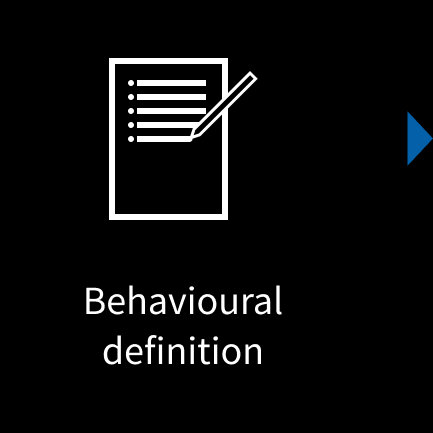
Novartis
What does ethical decision-making mean in an organisational context and how can we support it with behavioural insights?
Private Organisation | Ethics, Risk and Compliance | Ethical Decision-Making | Survey and Intervention Design
Context
Ethical decision-making is often a very abstract construct, especially in large multicultural organisations like Novartis. According to scientific research ethical decisions are influenced by several factors for instance, psychological safety, fairness, organisational justice, or conflicting goals (picture 1). Hence, understanding and shaping ethical decision-making in organisations requires a thorough examination the decision-making processes and a tailoring of measures of an individual organisation.
Example 1: Factors influencing (un)ethical decision making
Challenge
What does ethical decision-making mean in an organisational context and how can we support it with behavioural insights?
The challenge of this project was to identify and measure what factors drive ethical decision-making, how they affect employees of an organisation across different cultures and continents, and to identify possible interventions for improvement. The discovered constructs and behavioural drivers were then intended to be utilised to inform the design, implementation and testing of several interventions driving ethical and compliant behaviours. Several experiments, in part in collaboration, by Novartis alone and with other researchers were planned to foster ethical and compliant behaviours.
Approach
Firstly, Affective facilitated and supported the definition of “ethical decision-making” based on scientific research and existing internal guidelines and regulations.
Secondly, a comprehensive literature review was conducted to identify relevant psychological and environmental factors influencing ethical decision-making in the given behavioural context.
Thirdly, an in-depth pilot survey was co-developed with Novartis’ in-house team and launched to test the feasibility of the approach and the potential success of the experiment. The survey represented a worlds-first in its breadth and depth to measure ethical climate holistically.
Fourthly, the pilot survey results and engagement were analysed and evaluated, which successfully confirmed the chosen approach and initiated the launch of a yearly global survey within the organisation.
In the following, Affective further supported the analysis of the global survey data, the interpretation and visualisation of results as well as the design of potential follow-up interventions.






Concepts
Together with Novartis’ in-house behavioural experts, Affective identified several relevant behavioural science concepts and psychological factors contributing to ethical decision-making. Selected concepts include among others (full list not disclosed for confidentiality reasons):
Fairness & Trust
Clarity of Expectations
Locus of Control
Conflicting Goals
Deliverables
The project’s outcome was the design, implementation, and analysis of a comprehensive survey on ethical decision-making. It further included several trainings, publications and resources on ethical decision-making created by Affective for or in collaboration with Novartis’ in-house team.
For instance, a bias repository with a check tool for employees was built to evaluate ethical decision-making and resources for support. Further, an interactive management dashboard was developed, automatically informed and updated by the yearly survey results. The team continues to work on interactive designs.
After the completion of the project, the survey was elevated to a yearly global ethics evaluation within the organisation. Further, the high amount of new gathered insights resulted in a broad range of activities and initiatives for better ethical decision-making within Novartis. Findings have not only received great management attention but also lead to publications by Novartis’ team leads and world-renowned academics.
Example 2: Conversation between the Chief ERC Officer, the Global Head of Behavioural and Data Science - ERC and the Global Head BPA & Digital Finance about ethical climate, measuring trust and the important role of leaders when it comes to doing what's right.
Reference
“Affective is one of only a handful specialised behavioural science consulting firms around the world fully committed to applying rigorous, evidence-based insights in a practical and effective way.”
Antoine Ferrere, Global Head of Behavioural Science and Data Science, Novartis



